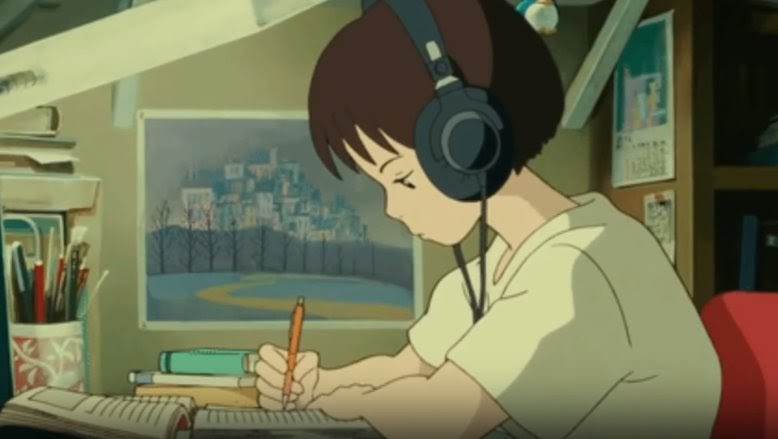Editor’s note: This article was originally published in the expatalachians newsletter. To subscribe, click here.
Country Roads

Last month the video game website, Polygon, published a lovely article about the use of John Denver’s song “Take Me Home, Country Roads” in the 1994 Japanese anime movie, “Whisper of the Heart.” The Studio Ghibli film chronicles the trials and tribulations of Shizuku Tsukishima, a junior high student, as she works on her first novel and finds love. The article explains how the use of “Country Roads” expresses a feeling of longing that transcends the geographic boundaries of Appalachia and West Virginia.
“To Shizuku, the song is so powerful because it’s about belonging, and she doesn’t feel like she belongs anywhere in particular…To her, the song’s longing is about so much more than a physical place. It’s about navigating the uncertainty of adolescence and finding a road away from her hometown,” Petrana Radulovic wrote.
Japan is not the only country that adopted the song into popular culture, as we wrote about in 2019.
Appalachian Anime Conventions

Anime is a global phenomenon, including in Appalachia. “Anime” is the word used to describe Japanese animation. Styles vary widely, but these many styles are united by being hand-drawn and digitally animated.
Anime has influenced Appalachia in some surprising ways.
Every year, anime conventions happen across the region. This year, many were canceled due to COVID-19. The Asheville Anime Regional Convention (AARC) was scheduled for June, but is now rescheduled for next year. The AARC is special because it fosters “nerd culture in Western North Carolina.” Without the convention, many western North Carolinians would have to travel to Charlotte or Columbia, South Carolina to find community.
Other regional anime conventions included Tekko in Pittsburgh, Pennsylvania; Tsubasacon in Charleston, West Virginia ; KenTOYKOcon in Lexington, Kentucky; and MomoCon in Atlanta, Georgia.
For a more exhaustive list of anime conventions in Appalachia and around the country, check out this website.
“Authentic” Representation

In an essay from 2010, then-PhD student Amanda Fickey discussed what should be considered “authentic” Appalachian art.
Fickey analyzes the art of Morgan, a young girl, at an eastern Kentucky county fair. Morgan drew a picture of the anime character Riza Hawkeye. The illustration was spot-on, but didn’t win any awards. Fickey brings this up to argue that the category of “traditional” arts often obscures other, genuinely Appalachian arts. In other words, Japanese animation represents a part of Appalachian art, identity, and culture just as banjo music or quilting does.
Accents

Since Japanese is the language of anime, it has to be dubbed for non-Japanese speaking audiences. Dubbing, however, is more complicated than simply having a native speaker re-voice a character. It involves translating accents along with cultural meaning.
For example, the Kansai (a region in Japan) accent is often used for characters who “may enjoy drinking and fighting, [and] be incredibly cheap (yet always broke).” To convey this Japanese cultural stereotype to an American audience, the Kansai accent is dubbed in “as either a Deep South/Redneck accent or a heavy Brooklyn accent.” People from Osaka, a city within the Kansai region, are stereotyped as stupid and rude. Rednecks, according to stereotypes, are stupid, and New Yorkers are rude and brash. By rendering Osakan accents as redneck or Brooklyn accents, problematic and damaging stereotypes are conveyed across linguistic barriers.
Annie Chester is a writer and co-founder of expatalachians. She writes about the environment and culture in Appalachia and abroad. She is currently a postgraduate student about to submit her master’s dissertation on deep-sea mining and governance. This article was inspired by that research.
Subscribe to The Patch, our newsletter, to stay up-to-date with new expatalachians articles and news from around Appalachia.


